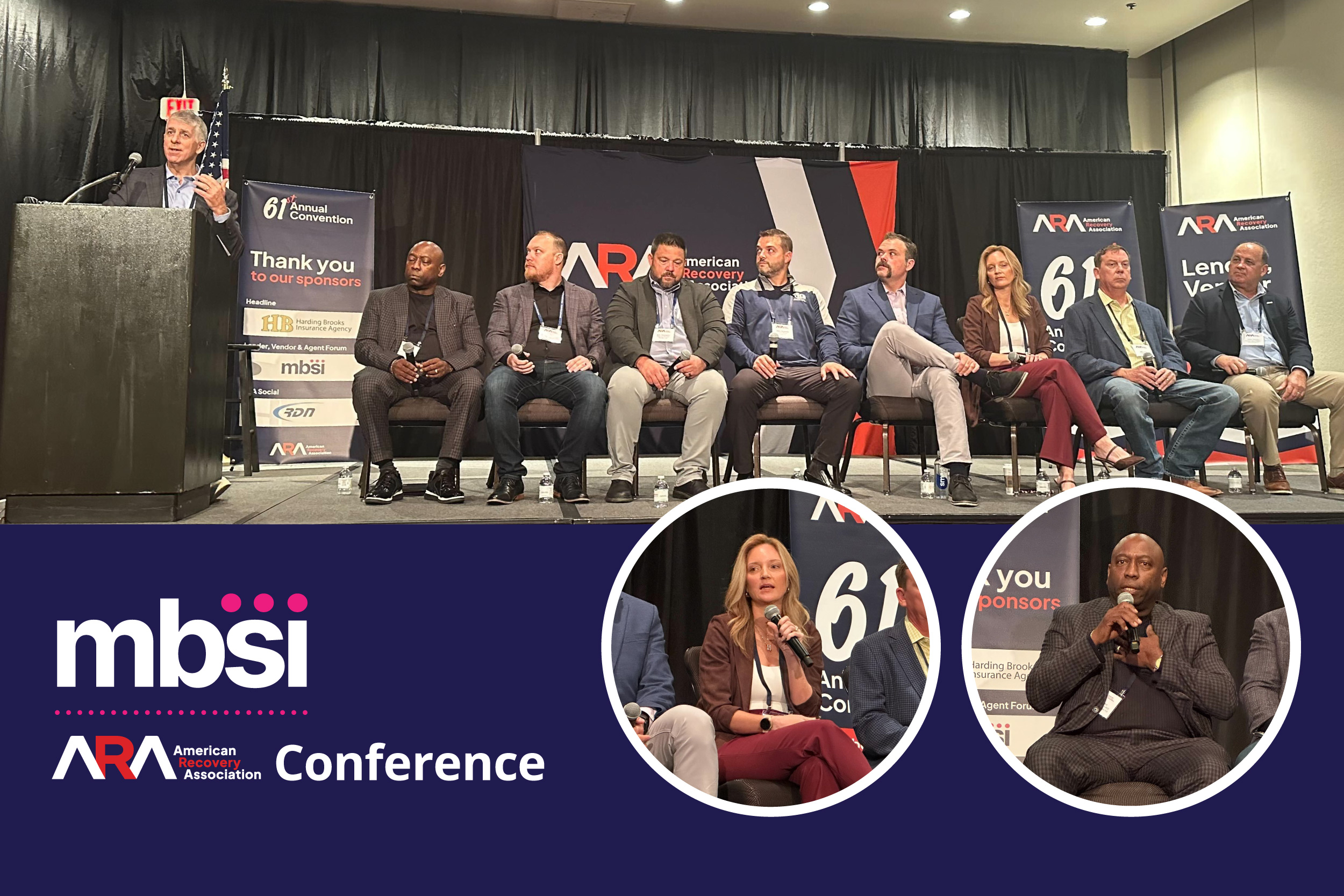At ARA’s 61st Convention last month in Reno, I had the opportunity to host a cross-industry panel of lenders, forwarders, agents, transporters and insurance providers for an open dialogue about industry challenges and a push for collaborative solutions. The overall takeaway from the discussion was the need for improved collaboration, standardization, and education to strengthen the recovery ecosystem.
Among the key challenges identified by the panelists:
- Contract “fairness” across lenders, vendors and agencies:
- The recurring, controversial topic is recovery fees have remained stagnant. This was coupled with comments around other contract terms seen as lacking fairness. A variety of views were expressed, underpinned by a general consensus that stagnated recovery fees have been offset by increases in ancillary fees.
- Lenders expressed openness to fee changes, albeit shifted the burden to agencies to prove value of higher costs. Lenders argued that their pay models reward performance, allowing agencies a path to profitability.
- Agencies proposed contractually driven annual rate adjustments to reflect rising operational costs (vs one-off rate change negotiations).
- Unpaid storage fees are a significant concern to agents, with a callout to lenders to cover those costs under fairness principles.
- Contract education and mutual understanding:
- Agents and lenders agree that both parties should be aware of contract elements and actively negotiate terms.
- Agents should know when to request rate increases, while lenders must be open to these talks when the reasoning is transparent and backed by data.
- Agencies can be their “own worst enemy”, accepting difficult contract terms to win business.
- Costs and challenges of the insurance model:
- Insurers continue to express challenges tied to underwriting this industry – “losses are outrunning premiums”. Less than half of the losses incurred were caused by agencies, suggesting a lot of upstream improvement by lenders to combat rising costs.
- Agency driver safety practices are – by far – the most controllable cost to agencies, and yet there is limited widespread adoption of accessible safety improvements.
- Lack of forwarder and lender accountability:
- Panelists called for accountability and transparency among forwarders to prevent double-dipping on fees, with lenders advocating for agents and pushing for industry-wide transparency.
- Storage, transport and timing bottlenecks:
- Transport delays are a pain point across the entire value chain. Obvious fixes were elusive, with discussion around first right of refusal for transport, standardized lot rules, and improved communication and scheduling.
- Industry-wide collaboration, reform and standardization:
- For Agencies, information flow and education can likely bridge the gaps in cost and liability that exist among agents, forwarders, lenders and insurers.
- State and national associations can lead reform efforts by helping establish standardized practices that reflect true operational costs.
And the role of technology?
Platforms that digitize contracts, automate fee tracking, and create audit trails can play a critical role in solving many of the pain points—from cost transparency to insurance verification to lender education. MBSi’s RecoveryConnect platform targets many of these challenges, helping reduce inefficiencies and mitigate loss while maintaining full visibility to real-time case status and the highest standards of security and compliance.
MBSi is solutions-focused and ready to help solve your biggest challenges. Connect with us via our contact form or reach us at sales@mbsicorp.com to get the discussion started.

